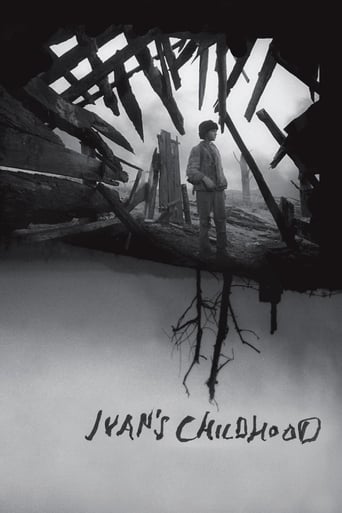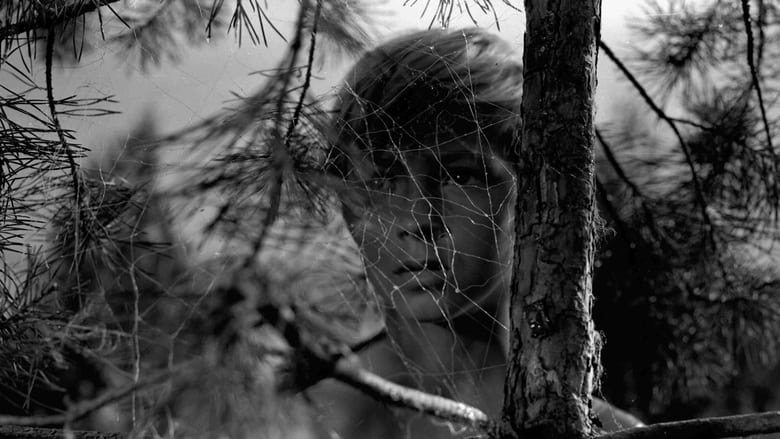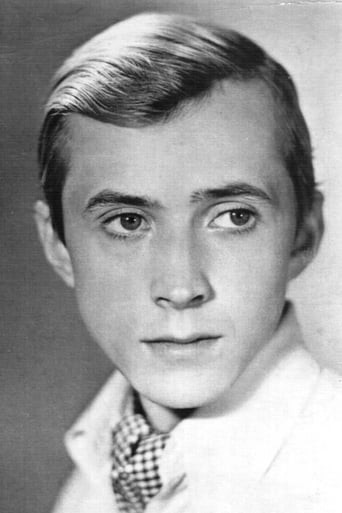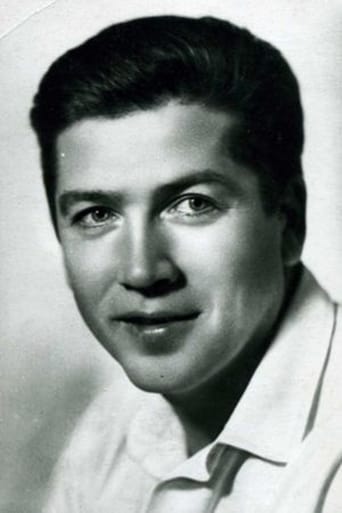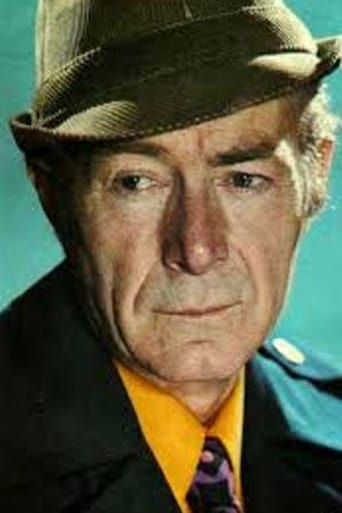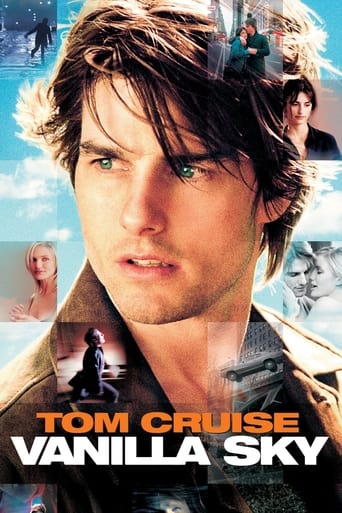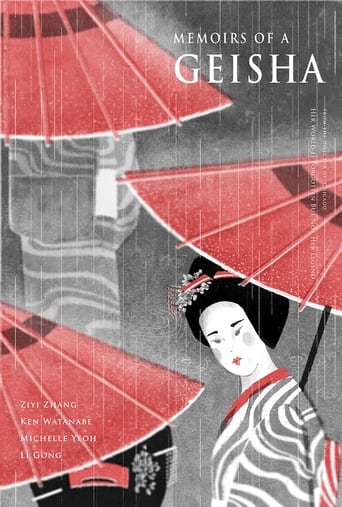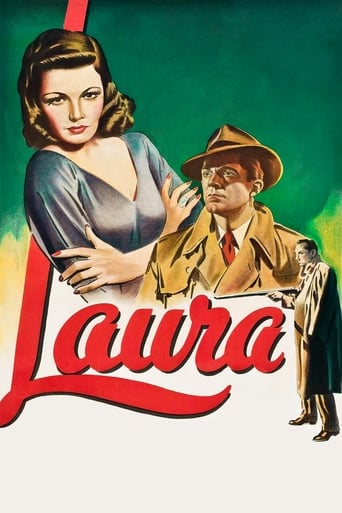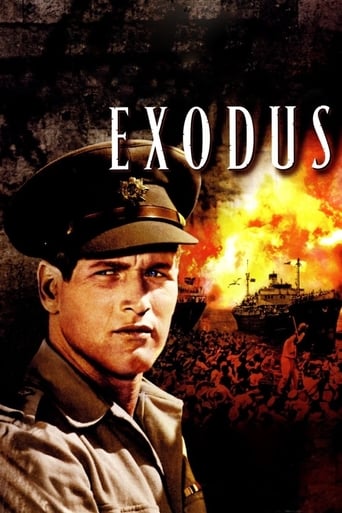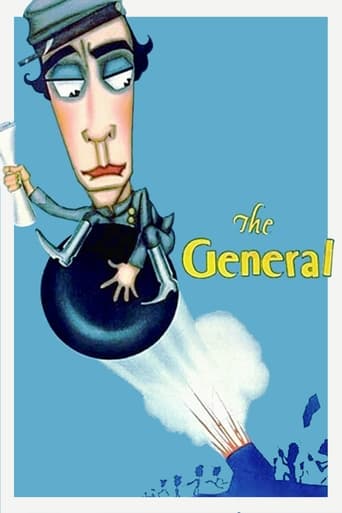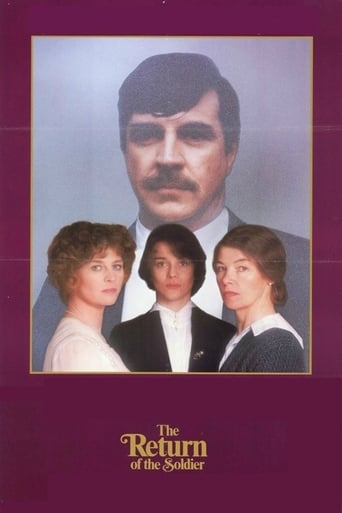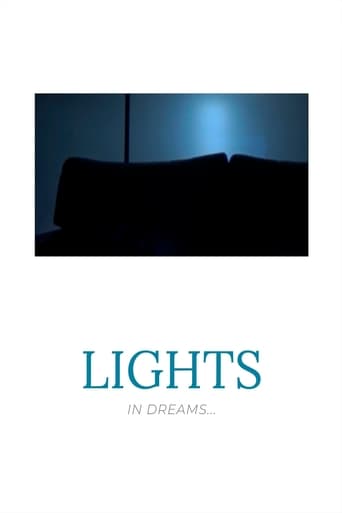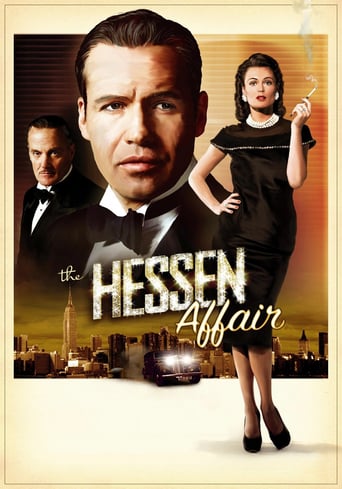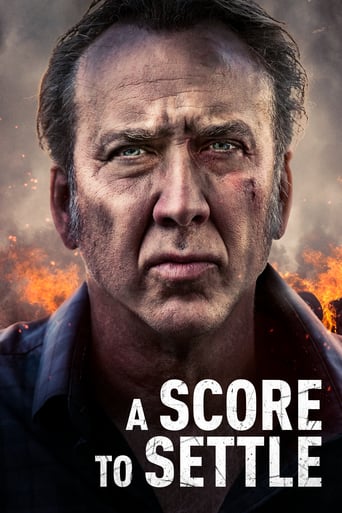Ivan's Childhood (1962)
In WW2, twelve year old Soviet orphan Ivan Bondarev works for the Soviet army as a scout behind the German lines and strikes a friendship with three sympathetic Soviet officers.
Watch Trailer
Free Trial Channels
Cast


Similar titles
Reviews
An action-packed slog
The movie's only flaw is also a virtue: It's jammed with characters, stories, warmth and laughs.
One of the film's great tricks is that, for a time, you think it will go down a rabbit hole of unrealistic glorification.
The best films of this genre always show a path and provide a takeaway for being a better person.
Just at this very moment, that classic Jim Croce song starts playing in my head as I recall my screening of "Ivan's Childhood". Why is it that Tarkovsky, in nearly all of his films, has a wistfulness of the past, in a way that fogs his narratives so uniquely? After seeing "Mirror", I came to the conclusion that Tarkovsky is a cerebral artist, and much less of an actual filmmaker. For in that film, he used memories that nearly disjointed the entire piece, and eliminated the aspect of time and structure of narrative features. I thought of it, kind of like an Eisenstein montage of the recorded memory. So sitting down to "Ivan's Childhood", I fully expected it to be the same, as most filmmakers of his ilk don't stray from their artistic visions. What a surprise it was to know that the film displayed the best of Tarkovsky's creative vision, under the guise of what seemed to be a classic war picture. Ivan is such a wonderful character. He's a brave little boy, fighting for Russia in the midst of the worst times of WWII. The Nazi's were on the warpath, and everyone had to do their part in fighting to protect themselves from the ongoing threat of fascism. We know how hard Ivan can work to support his military, but he really doesn't want to be there. He'd rather go to sleep and dream of his mother, and the place of his childhood. We see visions of him and his mother, staring down upon a wishing well, or frolicking on a sunny beach. It's that longing sense of innocence and ignorance to the problems of the world. You might say that that's what all Europeans and Russians wished they could escape to during the atrocities of WWII. When it is revealed that his parents were taken away from him, thanks to the evils of the Nazi army, it is clear that this is war he has to fight, regardless of how badly he never wanted to be apart of it. WWII has sucked him in. There is no better understanding of this then the opening scene and long take of him emerging himself into a murky lake as he swims to his military base. The river overtakes him completely, as the main titles appear on screen. Tarkovsky is clearly trying to say something here. He's saying that there is no escape from war, and it forces you deep into the grimy depths of it. Even in the many scenes where he stays in the underground room, it seems even more apparent that he's trapped. Foreboding is the writings of German prisoners on the wall that warn of eventual death.The other characters of the film seem to be just as trapped as poor Ivan. For example, we see another Russian in the army, Captain Kholin, who romances a young Russian army nurse, during an assignment in the woods. The way he lifts her off of the ground and kisses her passionately as his legs splay over a short ditch in the ground seems like a silent cry for help. Even the most ardent of soldiers are desperate to escape this terror of a war. For just a fleeting moment, he wanted someone to fall in love with. When tensions are this high, do you blame him? Wouldn't you rather hold on to a beautiful woman, tight, instead of fighting in a world war? The ending of the picture is quite interesting, and many have analyzed its significance. Some have said that it is a flashback, but I have a different take on it. In retrospect, I thought of this final scene as Ivan making it to heaven, which consists of the happy times of his past. There is just something so touching about the final scene, that despite knowing that Ivan has been killed during war, he must have reached the place of his childhood in the end. He always found comfort in remembering the good times of his youth, and perhaps, let's say, he was sent back there to relive those days forever. The shot of the dead tree on the beach might just prove my point. The dead tree might be a symbol of passing on to the other side, in the midst of all the happiness that we see in the final scene. I genuinely feel, for certain, that Ivan went to heaven, and his memories are heaven to him. "Ivan's Childhood" is a sad story, but an excellent film by Tarkovsky, as he uses his exceptional talent of memories to convey loss and rejuvenation. There's a spirit to a Tarkovsky movie, despite having such a grim exterior. His movies are about life and death, and how we all must cope about our balancing act between the two. Sometimes, all we have is our past to help comfort us about our present.
"Ivan's Childhood" feels like a propaganda film. Based on the short story "Ivan", from 1957 by Vladimir Bogomolov. It was actually one of the few Soviet Films of the 1960's that looked at the human cost of War, rather than glorify it. Saying that, the determined Ivan and his mannerisms still convince me of this "propaganda" notion, and unfortunately it's kind of impossible not to see how blatant it feels and would be for any other country to tackle similar material. I greatly respect that the film itself actually has a sense of urgency and conflict about it, but of course the highlights would be how clever the atmosphere is depicted in such small things, be it a crashed aeroplane or a vivid message on the bunker wall (Or more famously wooden beams of a destroyed house looking as they've torn into the picture frame).Told in a non linear fashion with a few flashbacks, 12 year old Ivan Bondarev (A stunning performance by the young Nikolai Burlyayev) drifts between memories and reality as he races across War-torn landscapes and murky swamps to report to Russian soldiers. In a subplot many of these young soldiers find themselves in moments of self-gratification and unrequited love, and it is also revealed that Ivan has a burning desire to exact revenge on the German's after many personal loses.Tarkovsky's peculiar way of shooting water and natural surroundings starts here (With thanks to his regular Cinematographer Vadim Yusov), and it's as impressive here as it will be again and again. There is also a great deal of restraint when it comes to music that really helps in showing how empty the forests are around our protagonist. Whereas the original scripts ending drew criticism for a more uplifting scenario, I applaud that the films ending did not draw away from the cold realities of war, or the loss of more innocent times that will definitely stay in your mind for a long, long time to come.Final Verdict: "Ivan's Childhood", has received much praise from master film-makers. Whereas I feel the quality dips a little in the subplot, and lacks more of the deeper themes Tarkovsky is particularly renowned for. It certainly has enough of an impact that ranks as one of the best from this avant-garde director. 8/10.
Andrei Tarkovksy's first feature film (excluding his shorts), about a boy named Ivan (Nikolai Burlyayev) working behind enemy lines as a military spy during World War II after being made an orphan by the Germans, is his most conventional film, though that hardly makes the film a conventional war movie. It includes a non linear narrative, dream sequences, documentary footage of the battle of Berlin, and many poetic images, mostly of Russian nature or of the pre war Ivan playing with his now dead mother (the remarkable black and white cinematography was by Vadim Yusov). The movie also includes good secondary characters, including the nurse Masha (Valentina Malyavina, who looks a bit like Tatiana Samoilova in The Cranes are Flying). The movie best scene has an officer who has pursued Masha romantically kissing her in a birch forest while holding her over a deep trench.
Andrei Tarkovsky's debut is full of surprises. It's not surprising in that it's excellent and is full of powerful storytelling, but in how direct it is. It's clear that this film influenced a lot of mainstream films in the ideas of a small force with lots of energy overcoming a large power, and it's incredibly effective in Ivan's Childhood, as his power and advantages are heartwarming, and often amusing. The highlight of the film is the astoundingly creative cinematography, with use of light and claustrophobic angles, it's full of kinetic energy that drives the film, shaping the surreal dreamscapes and jagged edges of the hyper-reality, with war scenes comparable to the scenes in Paths of Glory. Although it has dated melodramatic music, unnecessary subplots and some confusing sequences, it's a very entrancing and inspiring film. It definitely shoots Tarkovsky high in my directors list as I've only got The Sacrifice left. Pretty perfect career. 8/10

